Blue light lenses benefits
Technology is now so pervasive and wide-ranging that our eyes have not been able to adapt. In as little as a decade or two, the use of digital devices has accelerated so quickly that our eyesight has not yet caught up and is paying the price.
Here’s an example: a group of people spend their lives reading physical newspapers, and then all of a sudden the newspapers are replaced by a smartphone emitting a bright light that, according to research, causes all manner of eye complaints. Before long, they’re having headaches, eye pains, and find themselves squinting a lot.
In this article, we’re going to investigate the science behind blue light and what we can do to protect our eyesight. The solution is blue light lenses, but how do they actually work? Sit tight and we’ll tell you.
But first, what is blue light?
We’ve covered this in detail elsewhere, so be sure to take a look.
Essentially, blue light is just another kind of light ray emitted by the sun and is part of a ‘spectrum’ consisting of varying energy levels. Of the elementary colours emitted by the sun (yellow, green, red, orange, and blue) there are thousands of subtle variations, like light yellow, dark yellow, dark green and so on.
Now, each subtle variation of colour has an individual energy level and wavelength. On the red end of the colour spectrum, the rays are longer but have less energy. On the blue end, the rays are shorter but have more energy. Science doesn’t have to make sense, right?!
So, blue light rays have more energy?
That’s right, and it’s essentially nature’s solution to keeping us awake and alert. Blue light has more energy and as such is categorised into the HEV category (HEV stands for high-energy visible, if you were wondering). Because blue light has more energy, it causes more problems for our eyes. It can attack our eyes, causing tiny ruptures and microtears in our retina which we definitely do not want.
Blue light causes lots of problems…
So: blue light has a lot to answer for! It disrupts our natural sleep patterns, causes eye strain, and a whole host of other eye complaints. Most importantly: our eyes cannot block out blue light. It’s too penetrating, and our eyes cannot protect us against its high energy levels.
This is where blue light lenses come in. Just like the lenses protecting us from the harms of UV light, blue light lenses act as a protective barrier between our tender eyes and the risks of advanced technology and the smartphone age.
Here’s how blue light lenses work.
Blue light lenses and the ways they protect us
Micro-layer technology
Blue light lenses are made with minuscule ‘micro-layers’ built into the lenses. What these micro-layers do is alter the way light is transmitted or reflected, and so blue light lenses are engineered to either absorb or reflect a precise group of wavelengths. These wavelengths are those found to be most harmful to the eyes, usually anywhere between 380 to 450 nm (nanometers).
Anti-reflective coating
Blue light lenses use anti-reflective coatings (otherwise known as anti-glare) which minimise the amount of light reflected away from the eye. This then enables more light to transmit through the lens, combatting glare in much the same way that polarised sunglasses do.
Lens material
It’s important to consider what blue light lenses are made from, too. Aside from the usual things like comfort and style, the material of your lenses can affect how much blue light is blocked. We recommend that you opt for the lightest pair of lenses with the highest optical clarity.
Blue light glasses benefits
Now that our science lesson is over, we’ll quickly run through some of the benefits of blue light lenses.
You will reduce eye discomfort and strain
Prolonged exposure to blue light creates digital eye strain and will gradually wear away at your eyes. Your eyes will feel more awake using blue light lenses, and your overall eye health will be greatly strengthened.
Your sleep should improve, too
Because blue light (especially the light from your smartphone at bedtime) can impede your sleep pattern, using blue light lenses will encourage your brain to resume normal and healthy sleep patterns. Because the sun is a natural source of blue light, when you use your phone at bedtime you are essentially telling your brain that it’s time to wake up. This is an awful habit, when you think about it!
You may be able to prevent AMD (age-related macular degeneration)
Once we get to a certain age, our eyes will begin to give out on us. This is natural and is called AMD (age-related macular degeneration). Like we said earlier, prolonged exposure to blue light creates tiny tears in your eye, which once old age comes around will be made ten times worse. Blue light lenses will keep your eyesight good now, so that it doesn’t get even worse later on.
Your clarity of vision will improve
This one is simple: take care of your eyes, and they’ll take care of you. This is a long-term goal, and you’ll achieve it with a short-term fix: blue light lenses. Your eyes deserve some TLC!
Talk to us about blue light lenses
Did you know? All of our glasses can be fitted with blue light lenses.
If you would like more information about your lenses, get in touch here. We’re happy to run you through our wide range of lenses, including our eyewear for women range and men’s eyewear too. We have our Try Before You Buy Service, and you can even test out your face shape to find the perfect pair for you.
And, if you found the above interesting, learn more about eye health with the following articles:
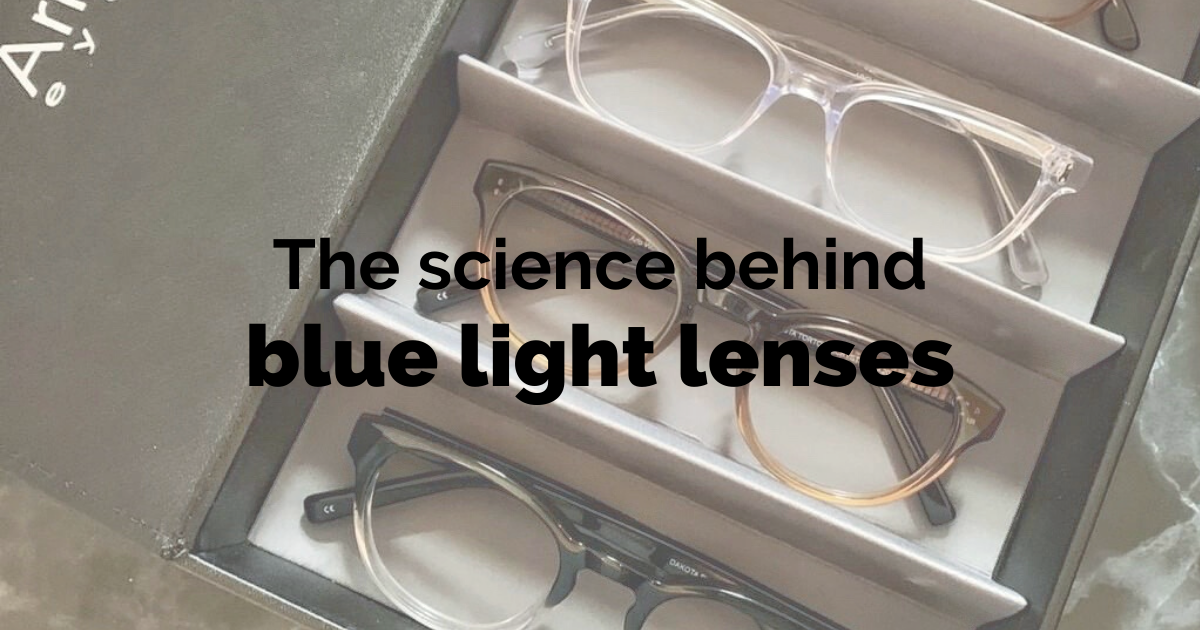
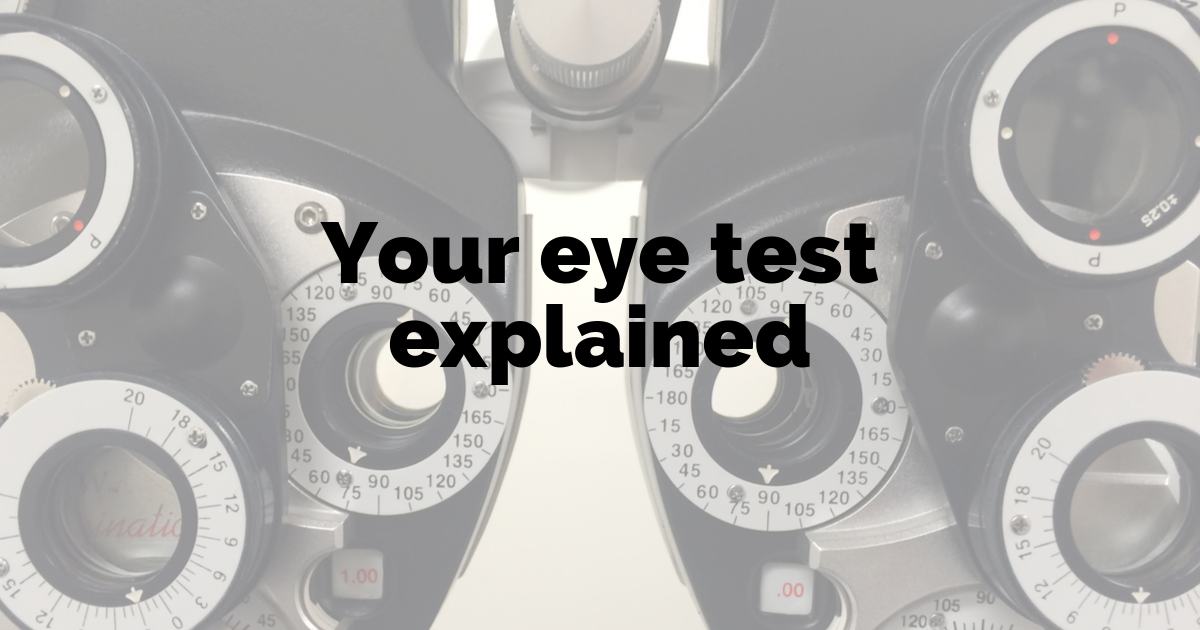 Your eye test explained
Your eye test explained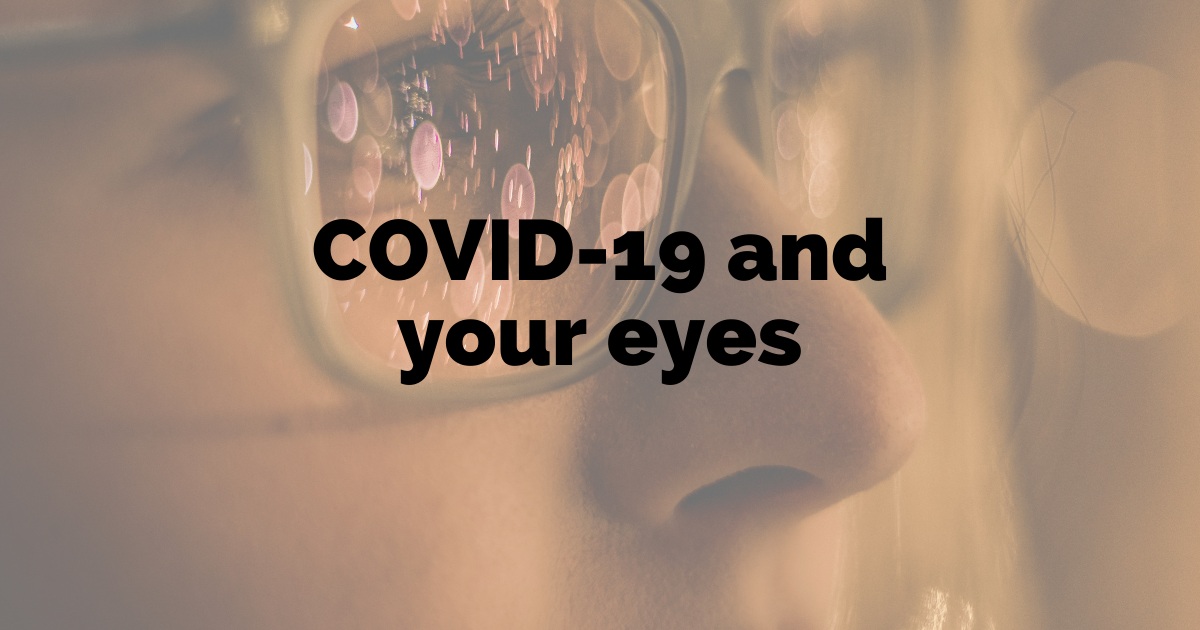 How COVID-19 can affect your eyes
How COVID-19 can affect your eyes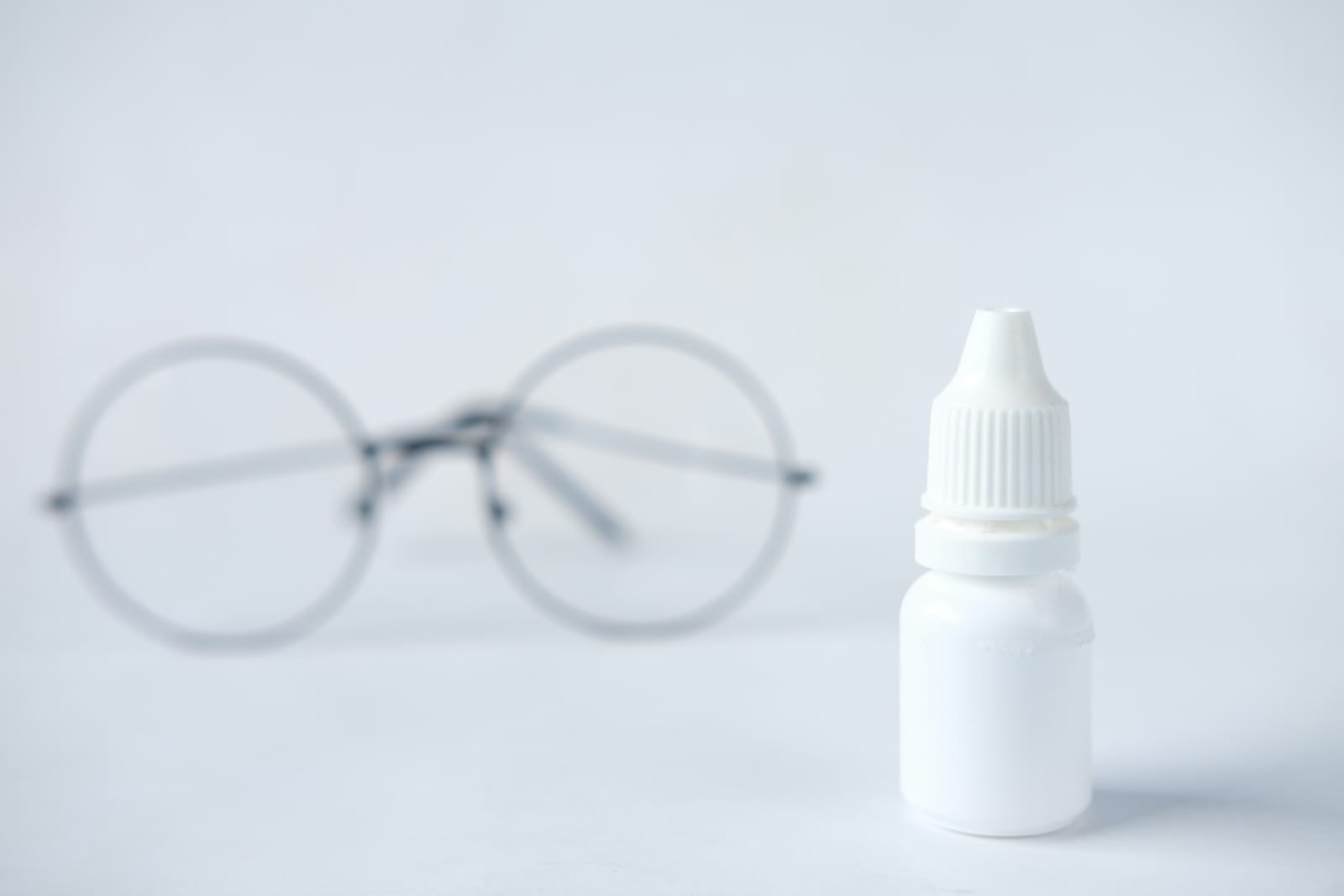 Are Eye Drops Safe to Use?
Are Eye Drops Safe to Use?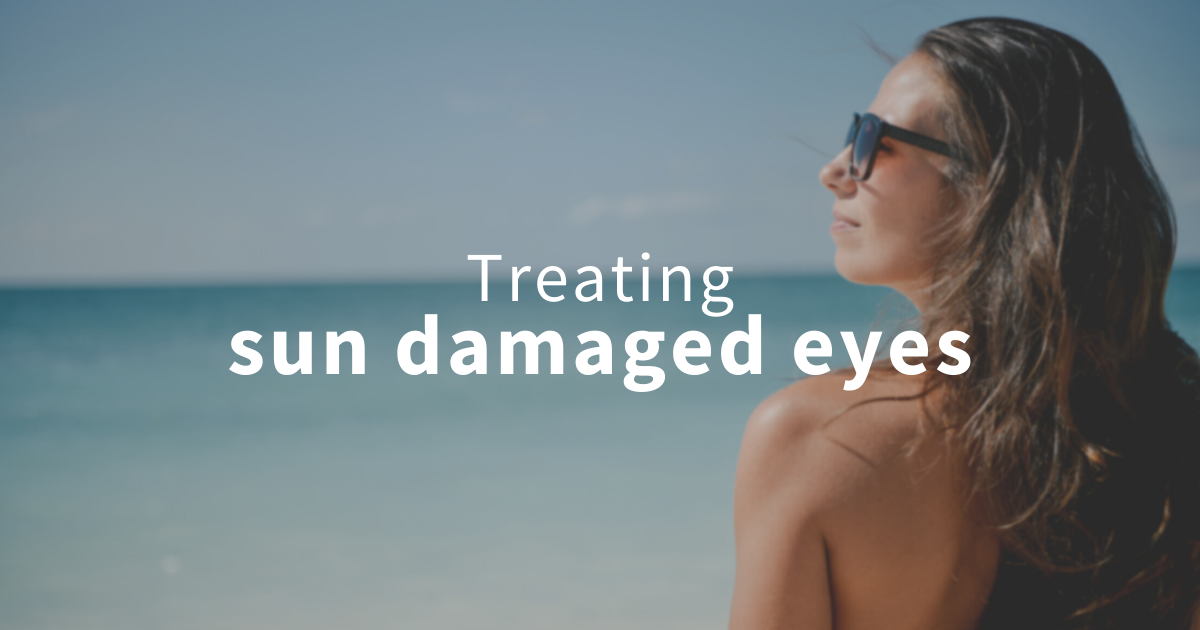 How to treat sun damaged eyes
How to treat sun damaged eyes